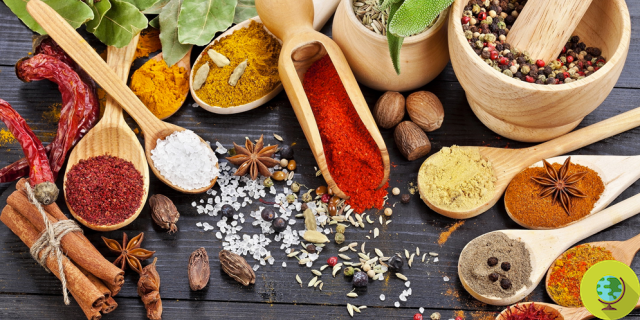
We knew that they had fantastic properties, but would you ever have said that spices and aromas were also excellent allies for reducing salt and fats? Spices and herbs can play a significant role in improving health by helping to reduce sodium, calories and fat and making healthy eating more attractive. That's the conclusion of a recent publication in Nutrition Today magazine.
Don't store avocado like this: it's dangerous
We knew they had fantastic properties, but you would never have said that spices and aromas were also excellent allies for the reduction of salt and fats? Spices and herbs can play a significant role in improving health by helping to reduce sodium, calories and fat and making healthy eating more attractive. It is the conclusion of one recent publication in Nutrition Today magazine.
The publication, entitled 'Spices and herbs: Improving public health through flavorful food', is based on proceedings of the conference convened by the McCormick Science Institute, in collaboration with the American Society for Nutrition in Washington and explores the most recent research on spices and herbs, including those indicating the positive impact on diet quality, satiety, energy metabolism, inflammation, insulin resistance and cardiovascular risk factors.
“Now you can understand that spices and herbs play a significant role to be done in bringing flavor to the fore in conversations about health and wellness. We will all need to work together - scientists, cooks and product developers and policy makers - before we can really begin to improve public health through flavorful food, ”said Johanna Dwyer, professor of community health and medicine at Tufts University. School of Medicine.
Index
But how can spices and herbs potentially improve our health?
Increase acceptance of healthy foods
James O. Hill of the University of Colorado presented data showing that adding low-fat spices and herbs to meals (lean meats, vegetables and pasta) helped make them more attractive and acceptable to people who struggle with long-term dietary changes to reduce fat.
Lower the sodium content
Spices and herbs have the potential to reduce sodium, without sacrificing taste. A study conducted at Johns Hopkins found that adding spices and herbs to food resulted in lower sodium intake. Participants who used the spices and herbs consumed an average of 966 mg less sodium each day than the group that did not use them.
Improve energy metabolism and satiety
Margriet Westerterp-Plantenga, of the University of Maastricht, presents research showing thatchili pepper increases energy expenditure and satiety in healthy adults, concluding that the chili peppers can help people who are trying to manage their weight.
Read: 10 foods that reduce the sense of hunger
Reduce cardiovascular risk factors
Add a blend of spices to a high-fat meal decreases triglyceride levels after meal compared to the same meal without adding spices. Sheila West of Pennsylvania State University remembers this.
Read: A touch of turmeric to prevent diabetes
Improve insulin sensitivity
Richard Anderson, PhD at the Beltsville Human Nutrition Research Center presented an overview of the evidence on cinnamon's ability to help improve blood glucose levels and insulin sensitivity.
Read: Cinnamon: the 10 surprising benefits for our health


























